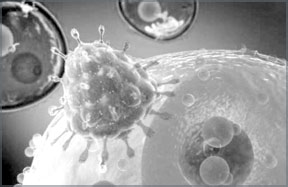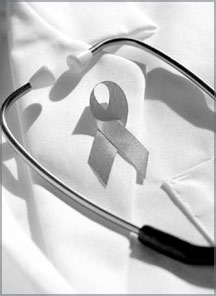
Know it. Beat it
Eight ICAAP confab kicks off at the BMICH today:
Will HIV/AIDS patients be able to fight a lonely battle for survival?
Most probably it will be losing one unless they get the support of the
society.
Taking a giant leap forward to create a better world - a world free
from AIDS - the 8th International Congress on AIDS in Asia and the
Pacific (ICAAP), confab with over 2,000 participants around the globe
has kicked off today at the BMICH. The conference started under the
theme 'Waves of Change Waves of Hope' will be concluded the on August
23.

Among several meaningful objectives one major objective of the ICAAP
is to ensure that communities that are infected, affected and vulnerable
to HIV/AIDS and their families are free from stigmatization,
marginalisation and discrimination by addressing political, social,
economic and cultural barriers and working towards societies in which
they can enjoy the full range of human rights and protections as
enshrined in the Universal Declaration of Human Rights and associated
Protocols.
Though people know very much about HIV/AIDS, still there is a room
for creating more awareness on the subject.
What does "AIDS" mean?
AIDS stands for Acquired Immune Deficiency Syndrome: * Acquired means
you can get infected with it.
* Immune Deficiency means a weakness in the body's system that fights
diseases.
* Syndrome means a group of health problems that make up a disease.
AIDS is caused by a virus called HIV, the Human Immunodeficiency Virus.
If you get infected with HIV, your body will try to fight the infection.
It will make "antibodies" - special molecules to fight HIV.

A blood test for HIV looks for these antibodies. If you have them in
your blood, it means that you have HIV infection. People who have the
HIV antibodies are called "HIV-Positive."
Being HIV-positive, or having HIV disease, is not the same as having
AIDS. Many people are HIV-positive but don't get sick for many years. As
HIV disease continues, it slowly wears down the immune system. Viruses,
parasites, fungi and bacteria that usually don't cause any problems can
make you very sick if your immune system is damaged.
These are called "opportunistic infections."
How do you get AIDS?
You don't actually "get" AIDS. You might get infected with HIV, and
later you might develop AIDS. You can get infected with HIV from anyone
who's infected, even if they don't look sick and even if they haven't
tested HIV-positive yet. The blood, vaginal fluid, semen, and breast
milk of people infected with HIV has enough of the virus in it to infect
other people. Most people get the HIV virus by:
* having sex with an infected person;
* sharing a needle (shooting drugs) with someone who's infected;
* being born when their mother is infected, or drinking the breast
milk of an infected woman. Getting a transfusion of infected blood used
to be a way people got AIDS, but now the blood supply is screened very
carefully and the risk is extremely low.
There are no documented cases of HIV being transmitted by tears or
saliva, but it is possible to be infected with HIV through oral sex or
in rare cases through deep kissing, especially if you have open sores in
your mouth or bleeding gums.
What happens if I am HIV positive?

You might not know if you get infected by HIV. Some people get fever,
headache, sore muscles and joints, stomach ache, swollen lymph glands,
or a skin rash for one or two weeks. Most people think it's the flu.
Some people have no symptoms.
The virus will multiply in your body for a few weeks or even months
before your immune system responds. During this time, you won't test
positive for HIV, but you can infect other people. When your immune
system responds, it starts to make antibodies. When this happens, you
will test positive for HIV.
After the first flu-like symptoms, some people with HIV stay healthy
for ten years or longer. But during this time, HIV is damaging your
immune system. One way to measure the damage to your immune system is to
count your CD4+ cells. These cells, also called "T-helper" cells, are an
important part of the immune system. Healthy people have between 500 and
1,500 CD4 cells in a millilitre of blood.
Without treatment, your CD4 cell count will most likely go down. You
might start having signs of HIV disease like fevers, night sweats,
diarrhoea, or swollen lymph nodes. If you have HIV disease, these
problems will last more than a few days, and probably continue for
several weeks.
How do I know if I have AIDS?
HIV disease becomes AIDS when your immune system is seriously
damaged. If you have less than 200 CD4+ cells or if your CD4 percentage
is less than 14 percent, you have AIDS.
If you get an opportunistic infection, you have AIDS. The most common
ones are:
* PCP (Pneumocystis pneumonia), a lung infection,
* KS (Kaposi's sarcoma), a skin cancer,
* CMV (Cytomegalovirus), an infection that usually affects the eyes,
see Fact Sheet 504; and
* Candida, a fungal infection that can cause thrush (a white film in
your mouth) or infections in your throat or vagina.
AIDS-related diseases also include serious weight loss, brain tumours,
and other health problems. Without treatment, these opportunistic
infections can kill you.
AIDS is different in every infected person. Some people die in a few
months after getting infected, while others live fairly normal lives for
many years, even after they "officially" have AIDS. A few HIV-positive
people stay healthy for many years even without taking antiretroviral
medications (ARVs).
Is there a cure for AIDS?
There is no cure for AIDS. There are drugs that can slow down the HIV
virus, and slow down the damage to your immune system. There is no way
to "clear" HIV from the body. Other drugs can prevent or treat
opportunistic infections (OIs). In most cases, these drugs work very
well. The newer, stronger ARVs have also helped reduce the rates of most
OIs. A few OIs, however, are still very difficult to treat.
HIV symptoms
HIV, or the human immunodeficiency virus, is a sexually transmitted
disease that assails the immune system. The virus attacks your CD4 cells
(or T4 cells), which are necessary to fight off illnesses.
Eventually, the virus overwhelms the CD4 cells and your body becomes
unable to fight off diseases and infections. Once your body's CD4 cell
count falls below 200 per cubic millimetre of blood, and/or an
opportunistic infection takes hold of your weakened immune system, you
will be diagnosed with AIDS (Acquired Immunodeficiency Syndrome).
Symptoms of HIV vary according to what stage of the infection you are
in.
Early symptoms of HIV
The earliest symptoms of HIV infection occur while your body begins
to form antibodies to the virus (known as seroconversion) between six
weeks and three months after infection with the HIV virus. Those who do
show early HIV symptoms will develop flu-like symptoms.
This can include: fever, rash, muscles aches and swollen lymph nodes
and glands. However, for most people, the first symptoms of HIV will not
be apparent.
Although the infection is slowly taking hold of your body, the
majority of those infected with HIV will be asymptomatic. Only by being
tested for HIV can you know for sure if you have been infected. Yet,
despite the absence of HIV symptoms, you are still highly contagious
during this time making it very much a possibility to infect others,
including your baby.
HIV/AIDS symptoms
As the infection progresses, people with HIV grow increasingly
susceptible to illnesses and infection that don't normally affect the
healthy population. Even though many of these illnesses can easily be
treated, those with HIV often have such weakened immune systems that
typical cures fail.
Without treatment, people infected with HIV can expect to develop
AIDS eight to ten years after HIV infection. Taking HIV medications,
however, can slow down this progression. With treatment, it can take ten
to 15 years or more before you develop AIDS.
In the later stages of HIV, before it progresses to full blown AIDS,
signs of HIV infection can involve more severe symptoms.
Symptoms of AIDS
To be diagnosed with AIDS, your T4 cell count must drop to below 200
per cubic millimetre (in healthy adults, a T4 cell count of 1,000 or
more per millimetre is normal) or be infected with an opportunistic
infection.
Opportunistic infections are so named because they take advantage of
your weakened immune system. They include:
* Chronic yeast infections or thrush (yeast infection of the mouth)
* Fever and/or night sweats
* Easy bruising
* Bouts of extreme exhaustion
* Unexplained body rashes
* Appearance of purplish lesions on the skin or inside mouth
* Sudden unexplained weight loss
* Chronic diarrhoea lasting for a month or more Additionally, vision
loss, nerve damage and brain impairment can also occur.
Signs of brain deterioration include troubles thinking, loss of
co-ordination and balance and behavioral changes. While there are
treatments to help prolong the life of those infected with the AIDS
virus, there is currently no AIDS cure. The best way to protect yourself
is by taking preventative measures.
HIV prevention
There are many steps you can take to help protect yourself against
and prevent HIV and AIDS.
Sexual prevention
One of the main ways HIV transmission occurs is through vaginal,
anal, and oral sex. Therefore, the best way to prevent being infected
with the HIV virus is by practising abstinence. This means to refrain
from having sex.
Having sex within a long-term, mutually monogamous relationship with
someone who has tested free of HIV is also considered to be safe.
If you do choose to be sexually active and are not in a committed,
mutually monogamous relationship, it is imperative that you use condoms
each and every time you have sex.
While condoms cannot completely eliminate your risk of being infected
with HIV, using them consistently and properly can significantly reduce
your risk of infection.
Needle risk
It is possible to contract HIV by using contaminated needles. Most
commonly, this refers to needles and syringes used for intravenous
drugs. However, it can also include needles used in tattooing and
piercing.
For intravenous drug users, the best way to prevent being infected
with HIV is to quit using drugs. Failing this, though, you can reduce
your risk of infection by:
* Never sharing or reusing needles for drug injection
* Always safely disposing of your needles or taking them to a needle
exchange centre.
If you are getting a tattoo or a piercing, be sure that the facility
you go to only uses new, sterile needles. The facility should also
dispose of used needles in a safe and sanitary manner.
Blood contact
One method of transmitting HIV is through contact with an infected
person's blood. Since the early 1980s, all blood services and blood
banks in North America have utilized rigorous screening procedures to
ensure that all the blood they collect and distribute is free of the HIV
virus.
However, not all countries have the facilities or resources for this
type of screening. If you are planning on donating blood, make sure the
needles they use are new and sterile. If you are receiving blood, ask
about the screening process of the blood being used in the procedure.
Healthcare workers are also at risk of being infected with HIV
through direct contact with an infected person's blood. People working
in a healthcare setting should take the following precautions to lower
their chances of accidental contact and infection:
* Wash hands thoroughly with soap and warm water both before and
after a procedure
* Always use protective barriers (i.e. latex gloves, masks) when you
are in direct contact with bodily fluids including blood
* If possible, always use new, single-use disposable needles and
syringes for all injections. Safely dispose of this injection equipment
immediately after use.
* Promptly disinfect any contaminated equipment that is not
disposable after use. If you think you may have come into contact with
an infected person's blood, it is a good idea to go for HIV testing.
HIV and pregnancy
Because it is possible to pass the HIV virus onto your unborn child,
it is highly recommended that all pregnant women, regardless of whether
they display any HIV symptoms, have an HIV test done during their
pregnancy.
Pregnant women who are HIV positive should discuss with their
healthcare provider about starting treatment. Mother-to-child HIV
transmission is also possible through breast milk. If you are HIV
positive, discuss with your doctor the pros and cons of breastfeeding
your child. You may be advised to avoid breastfeeding.
Hep C and HIV together
Because HIV and Hep C are both spread by contact with infected blood,
many people are "coinfected" with both viruses. Coinfection has some
special problems. Hep C makes HIV disease worse. This is probably due to
liver damage. However, Hep C doesn't seem to interfere with
antiretrovirals (ARVs).
* People with both infections are more likely to be depressed. This
can lead to missed doses of medications (poor adherence, and are more
likely to have problems thinking)
* For people with HIV, Hep C can be more serious and can cause
serious liver damage and liver failure more quickly. Hep C treatment for
coinfected people is successful for about 25 percent with genotype 1 and
50 percent with genotypes 2 or 3.
* People with HIV are more likely to transmit Hep C to others because
their Hep C viral loads are higher.
* The drugs used to treat HIV are hard on the liver. However, we
don't know if ARVs make Hep C worse.
* Sometimes HIV should be treated first. If someone meets the
guidelines for HIV treatment, and they have a mild case of Hep C, their
HIV should be treated first. Leaving advanced HIV untreated for 6 to 12
months could have serious consequences.
* Sometimes Hep C should be treated first. However, if HIV doesn't
need to be treated yet (if CD4 cell counts are high enough, and HIV
viral load is low enough), it's a good idea to treat Hep C first. Then
the liver can be in better condition to deal with HIV drugs.
* Hep C coinfection slows down the rate of increase in CD4 cell
counts during HIV treatment.
AIDS Infonet
|
